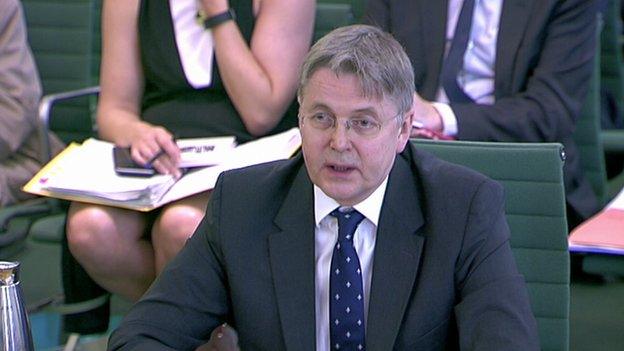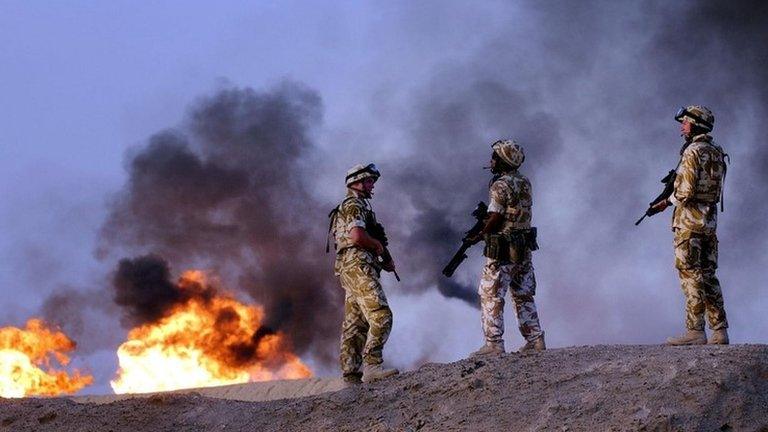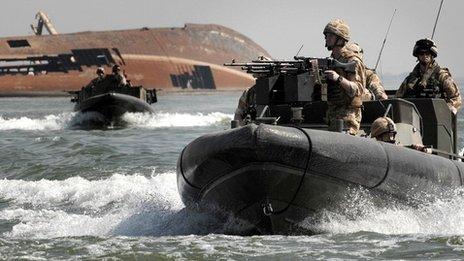Iraq Inquiry: Chilcot turned down help says top official
- Published

Sir Jeremy Heywood said officials would have to take a "long hard look" at how long it had taken
The chair of the Iraq Inquiry has repeatedly turned down offers of extra assistance to help speed up the report, the head of the Civil Service has said.
Sir Jeremy Heywood rejected claims he had "washed his hands" of the inquiry, which has been going nearly six years, telling MPs he had offered Sir John Chilcot help at a recent meeting.
But he told MPs there was nothing he could do to accelerate the process
David Cameron has said he is "fast losing patience" over lack of progress.
Sir John has said he still cannot set a deadline for when the report into the UK's involvement in the 2003 Iraq invasion and its aftermath will be finished.
The last public hearings took place in 2011 but progress has been delayed, first by drawn-out negotiations over what documents can be published, and then by the process of so-called "Maxwellisation" - where those likely to be subject to criticism in the report are given a right to respond.
'Not in my hands'
Appearing before the Public Administration Select Committee, Sir Jeremy said that the inquiry was independent of government and its timetable was not "in my hands".
"I'm not washing my hands of it," the cabinet secretary said. "I have repeatedly offered to Sir John extra resources on behalf of the prime minister, extra legal resources and so on.
"At the prime minister's request I saw him again recently, we had a private meeting at which I repeated that request, obviously.
"I just know that John Chilcot will complete this report as soon as he possibly can. He is as aware as everybody else is about the importance of getting this done and quickly.
"We have repeatedly offered the inquiry further resources, they say they don't need them, they are doing it as fast as they can."
Sir Jeremy said "everyone" was frustrated at the length of the inquiry and suggested that, once it had been published, officials would take a "long-hard look" at why so much time had elapsed.
"But not in a way that interrupts the last phase of the inquiry, the inquiry needs to just get its head down and complete its work."
Ministers have rejected calls from MPs and peers for the inquiry either to publish its findings now or for it to be wound up.
- Published1 July 2015

- Published5 July 2016
